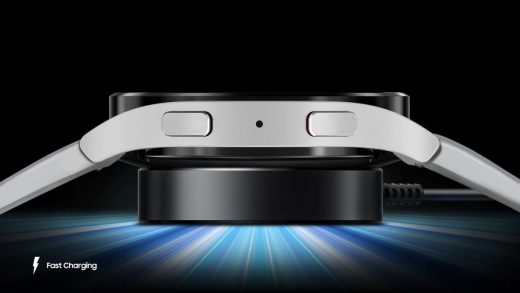
A dairy owner is under fire for allowing his Paywave facility to be used for multiple transactions with stolen credit cards.
Trish (last name withheld) had her cards stolen on March 11 when her car was broken into while she went for a walk in Bottle Lake Forest in north Christchurch.
The culprit(s) headed straight to McDonalds in Marshland where they used her stolen card to buy $75 of takeaways and then went to the Cashel Convenience Centre on Cashel St in Linwood, run by Benjamin Yap.
In 2016 the dairy owners erected a fortress to prevent robberies. Customers can view items on shelves and in fridges, but timber and wire walls prevent them from accessing them.
READ MORE:
* BNZ hit by second outage in four days
* Retailer ditches Paywave transactions after estimating almost $8000 in bank fees a year
* Coronavirus: How do we still have No Paywave?
There the culprit(s) spent $1305.03 in nine rapid-fire transactions with two credit cards in the space of about seven minutes, buying mainly cigarettes.
No PIN number was required because all the transactions used Paywave, a payment feature that lets customers use their enabled cards or mobile devices at the point of sale. A customer simply waves the card or mobile device over the secure reader at checkout.
martin van beynen/Stuff
Benjamin Yap has been accused of being slack about vetting people who come in with stolen credit cards.
It is regarded as a useful way of reducing the risk of Covid transmission. The limit per transaction was increased to $200 in 2020.
Then it happened again. On May 26, Anna (last name withheld) had her wallet stolen from his husband’s car as he was coaching football at Ferrymead Park.
Soon afterwards, about 5.10pm, the thieves were at Cashel Convenience spending up large. They bought $2313 worth of goods in 16 transactions using four different credit cards and Paywave in about 10 minutes. Two were business cards. Cigarettes were the main purchase.
As with the transactions using Trish’s cards, Yap did not ask questions or get ID, even though the customer in the latter incident was gloved, hooded and wearing a peaked cap to prevent a security camera above the counter taking her image.
martin van beynen/Stuff
Dairy owner Benjamin Yap serves customers from behind a chained barricade.
Yap, who has been running the dairy since the beginning of last year, said he had no reason to be suspicious in the two incidents.
People came in from time to time spending large amounts on multiple credit cards, he said. It was nothing unusual for people to have several credit cards.
The appearance of the thieves in Anna’s and Trish’s cases did not ring alarm bells, although he would be “more aware” in the future, he said.
However, Trish and Anna believe Yap has questions to answer.
“It is not a story that can be confused in any way…..These people need to be held to account,” Trish said.
Peter Meecham/Stuff
Stolen bank cards have been used to buy cigarettes at Cashel Convenience Centre – much to the frustration of the cards’ owners.
Anna said she did not buy Yap’s excuses.
“It makes absolutely no sense that a person would do so many transactions across four credit cards in such a short space of time.”
She believed it was a wider problem as her stolen cards were also used at BP2GO Redcliffs ($524.45) and ROC Nation ($292).
Dairy owners’ association president Sunny Kaushal said 95% of dairies did not use Paywave because of the extra bank charges and the ease with which stolen cards could be used.
Customers wanting to use Paywave who were obviously trying to disguise their identity should be asked for identification or refused service, he said.
Trish said the bank had reimbursed her for the frauds, but she had still lost out.
“The car window was smashed. My bag and wallet were stolen and there was $1200 cash in the wallet. Good day for the criminals, don’t you think?”
martin van beynen/Stuff
A camera above the serving cubbyhole films people coming into Ben Yap’s dairy, but it is easy to avoid identification.
Yap said he had tried to help Trish, but she had been abusive and threatening. He had made a complaint to the police about her.
In correspondence with Trish, the police agreed the transactions were suspicious but did not see further inquiries would identify the culprits.
“It might have been different if they had got onto it sooner,” Trish said.
A police spokesperson said staff were “following lines of inquiry” into Anna’s case.
However, Trish’s case had been filed because there was “insufficient” evidence to identify the offender(s).
Westpac and ANZ banks were asked specific questions about problems with Paywave and amounts reimbursed to clients.
Stuff
In 2016, the dairy owners installed locked doors to prevent robberies.
A Westpac spokesperson said there were relatively few instances of fraud relating to lost and stolen credit cards being used in person, and the number was generally stable.
“If a Westpac merchant was deliberately facilitating fraudulent transactions, we would terminate their facility and exit them from the bank.”
An ANZ spokesman said the bank had safeguards in place to prevent fraudulent activity such as Paywave fraud and to ensure customers did not experience financial loss.
“ANZ has a fraud monitoring system in place to identify suspicious activity on customers’ card accounts.If we suspect fraudulent activity, we’ll try to contact the customer to confirm the transaction. If we can’t contact the customer, we’ll make a decision on whether we need to block the account until we can reach them.
“We also monitor our Merchants and will contact them if we detect behaviour that looks fraudulent. .”
123rf
People can use Paywave cards without using a PIN for transactions up to $200.
The banks did not say how much they had reimbursed clients whose stolen credit cards were used in Paywave transactions.
BP Redcliffs did not respond to requests for comment.
Yap said people like Trish should switch to banks with a more reliable fraud detection team or immediately change PIN or passwords when their cards had been stolen or lost.
“I’m not saying anything further as doing so would be only solving other victims’ problems and not mine when no-one [has] caught the thief or thieves who stole items (his credit cards and phone) from me on the night of Friday, 20th May in Rolleston.
“If I had better support from the police, I would have already gone to a store to purchase at least two or more cameras to enable the police to catch thieves of other victims from outside the building.”

